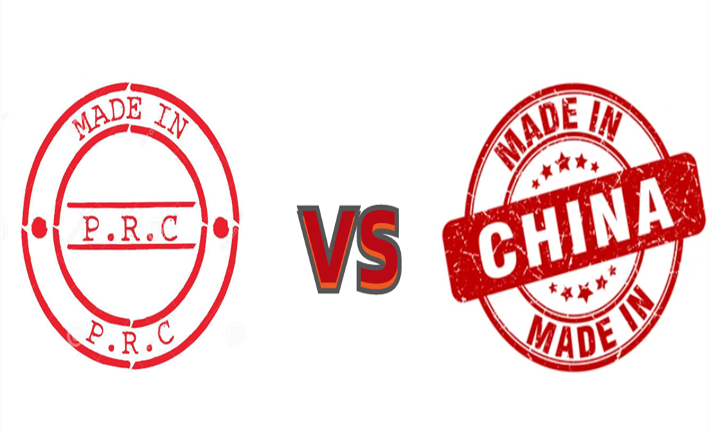The Importance of Building Trust and Supplier Relationship Management in China for Long-Term Business Success
In China, relationships matter. Understanding the importance of guanxi in China and strategic supplier relationship management can significantly benefit your business in China. It requires effort and patience, but the rewards can be substantial.
China has developed its cities and industry rapidly in the past 40 or so years, but its culture has adapted at a different speed. The culture is rooted in a village community system where people only trust those in one’s inner circle. This inner circle could include family, friends, and close business partners. In China’s collectivist culture, people commit to caring for the people within their inner circle.
Guanxi (关系)
The Chinese word for strong connections within these inner circles is guanxi (关系)1. The principle of guanxi, or strong ties within the inner circles, creates moral obligations and a constant exchange of favours that benefit both parties. The principles behind guanxi stem from a long history. A large part of the business between companies in China takes place based on the principles of guanxi. While in many Western countries, laws and contracts serve as the underlying basis of cooperation and trust, in Chinese culture, guanxi and reputation mainly serve this purpose.
Family connections and business connections are at the heart of how many companies cooperate. People look for people they already know and trust. They always try to always work together with people in their inner circles. Violating Guanxi can lead to a loss of face. It is difficult to still do business with the people in your inner circle if you ruin your reputation. Therefore, trust based on guanxi is not commonly violated.
The other side of this culture of inner circles and guanxi is that people generally will not want to work with anyone outside their circle. The Chinese are usually very risk-averse about people outside their inner circle and don’t easily trust people. To protect the inner circles, people may see taking advantage of outsiders even as morally acceptable. It’s no wonder many Chinese people deal with others outside their inner circle with much caution and distrust.
Managing supplier relationships in China involves constant communication and showing genuine interest in their business. It’s essential to understand the other’s party’s needs and challenges and offer support when possible.
This article will explain the following:
- Why a strong supplier relationship management in China can benefit your business
- How to build a better relationships with your Chinese suppliers?
Why is supplier relationship management critical in China, and how can it benefit your business?
Chinese people tend to mix professional and personal relationships much more than in the West. Guanxi and relationships play a significant role in business interactions and relations. Employers hire family or friends for open positions. When looking for a supplier or client, networks of friends, family or people from the same village or city are beneficial.
Long-term trust relationships are necessary to create opportunities that otherwise would not be accessible. People are looking to cooperate with those who they trust the most. It makes doing business in China more difficult for a foreigner. It is common for foreigners to begin their cooperation in the most outer circle of trust. There may be a problem with the need for more trust between the suppliers.
Building a meaningful trust relationship may take a lot of time and effort for a foreigner doing business in China. But if you can build a trusting relationship, the benefits are numerous. The factory may prioritise your order over other clients that don’t have this strong connection. You may have direct access to the factory owner and be able to push harder to get things done and problems solved. Also expect to receive more transparent and trustworthy information from your supplier, so communication becomes smoother. You may also be able to negotiate better prices and payment terms or demand stricter quality control over your orders.
How to improve supplier relationship management in China?
So, how to build this personal relationship and make your supplier an asset to your company?
Below you will find three ways of establishing an effective long-term relationship with your supplier that will benefit you. Transform your supplier from a burden to a valuable asset for your company.
- Show from the beginning that you are a trustworthy, experienced and high-status customer
- Develop a personal relationship
- Establish a long-term plan for cooperation
Show from the beginning that you are a trustworthy, experienced and high-status customer.
The first step to gaining respect and trust is meeting or contacting your supplier for the first time. Make sure that you can show the supplier the best part of your company and that you can be a reliable partner for them. There are several things you could do to get more respect at the beginning and to move a bit more towards the inner circle of your suppliers’ contacts:
Let someone who already has connections in the industry or even knows the supplier refer you to them.
Most Chinese people prefer to do business with people they have a personal connection with. It can help if an intermediary introduces you to your supplier, who knows the business and preferably already knows the supplier. Especially when this person has already met people from the supplier’s side, it may help you remove the first layer towards the inner circle, enabling you to get some level of trust early on.
Gain some general knowledge of Chinese culture and language.
For many Chinese, doing business with a foreigner who doesn’t speak Chinese and doesn’t understand the Chinese customs and its social and business culture can be daunting. When you show some knowledge and respect for Chinese culture and language, the Chinese side will naturally respect you more, and they may see you more as “one of them”. If you know some Chinese words, for instance, or you know about their local foods or tea, they might be pleasantly surprised. It can assist in establishing an immediate connection with a Chinese contact. The Chinese partner will feel more at ease with you, so it decreases the distance between you and your supplier.
Take the hierarchical aspects and importance of status into account.
The higher the social status that you have, the more successful you are likely to be at being introduced to the right people and key decision-makers. To gain respect from the higher-ranked staff on your supplier’s side, you will most likely also need to present the higher-ranked people in your company to them. Seniority is significant in Chinese culture, so sending older and more experienced staff to talk to the Chinese partner may be better. Gaining trust requires showing that your company is successful in the market and that the contact person has a good reputation. If you work successfully with other companies, also show this, as the Chinese side very likely cares about how other people and companies see you. Status and hierarchy play a crucial role in Chinese business culture.
Show respect and care for your suppliers from the beginning.
Even though most Chinese people will understand that their “face culture” doesn’t have the same value and meaning in the West, it is still advisable to consider the cultural factor of “face” when working with a Chinese company. Reputation is critical to people in a company, especially those who hold higher positions. For Westerners, working in a way to always take care of the other party’s reputation and face may feel unauthentic and fake. But during your cooperation, it’s better to do so and avoid confrontation, especially publicly expressing critique. When you talk about your supplier’s company, express your appreciation.
Also, show your Chinese supplier that you care about them and value their ideas and opinions. Ask questions to understand their situation, and try to consider it in your decisions. Doing this will help you be seen as a good client, show that you respect them, and you will build a better rapport with your supplier. The Chinese company will likely support you and make things possible. You create a “give and take” relationship with your supplier and may be able to work on better terms with them.
Develop a personal relationship.
There is less distinction between personal and business relationships in China than in the West. You cannot distinguish between a solid professional relationship and a strong personal one in China. Make an effort to get to know the people behind your suppliers more intimately, not only your sales contact person but also the boss and the technical and operational managers in the factory. Solid personal relationships can ensure that issues are solved quickly and easily.
Get to know the people you work with personally from a distance.
Although it is more challenging to build a closer connection with your supplier if you are not in China, it doesn’t mean that you shouldn’t still put effort into building a better relationship on a more personal level. Spending time trying to get to know your suppliers on a personal level will make cooperation more constructive. Keep regular communication and share information or ask for updates, even if you don’t have orders at that moment. Ask about personal issues and comment on the social media posts of the people you work with (especially on WeChat). All these things help in improving your supplier relationship management strategies in China.
Have face-to-face meetings with all relevant staff in the factory.
The most effective way to build a good relationship is to meet people from the supplier’s side face-to-face. In China, face-to-face meetings are much more productive than emails or video calls, especially if you can get in front of decision-makers. You are probably mostly in contact with a salesperson normally, with limited organisational influence. If you can, regularly come to China and talk to the middle managers (who allocate capacity and set priorities) and the technicians working on your orders. Recall the boss’s name and ask for his input as well. Since Chinese companies are usually very hierarchical, having a positive connection with the boss is especially helpful in getting things done and solving problems.
Try to connect personally during these meetings instead of only talking about business. You can talk about you and your family and inquire about theirs. You could ask what food they like and what region they come from. Just be interested in them since it will also help you to know more about how they think and make decisions. Beware of avoiding some sensitive topics, especially politics. Showing strong opinions, in general, may be intimidating, as you may not be aware when you might bring up a sensitive subject. Better focus on positive topics and show appreciation for their openness. It will all help you get closer to their inner circle.
Spend quality time in China.
There is a weak distinction between personal and business relationships in professional meetings and spending time outside of work. Spending time in a social environment with business partners (ying chou/应酬) is generally seen as an important part of the work of salespeople and other higher-ranked staff in Chinese companies.
When you visit China, you can strengthen your interpersonal relationships further by spending quality time with the people you work with. In China, relationships are more trust-oriented and personal, so it takes continuous effort and socialisation to develop and maintain them. Have lunch or dinner together or even enjoy entertainment, such as singing karaoke, with the people you do business with. Often food and (alcoholic) drinks are involved in these social activities. It will be appreciated if you could enjoy and try these drinks and foods as much as you are comfortable with. Meeting people in a personal setting is an excellent way to build trust.
Another thing that you should take into account is the gift-giving culture. Giving gifts is vital to doing business and building relationships in China. So it’s wise to prepare some gifts before coming to China. The most appropriate gift may be some speciality from your home country. Since reputation and status are highly valued in China, make sure that your gift looks luxurious and expensive. (What it looks like is more relevant than what it is).
Establish long-term trust
Trust is built over a period of time, so the longer you plan to work with the same supplier, the better the cooperation usually becomes. Suppliers are also looking for reliable, long-term clients. If you can become one of their stable long-term clients, the collaboration will be more accessible over time. Therefore, from the beginning, discuss a long-term plan for working together with your supplier. Doing this will help ensure that both parties understand the goals of the partnership and can work together to achieve them.
Your actions should demonstrate your trustworthiness and reliability over the long term. Pay on time and honour agreements. Communicate about plans and orders and keep orders coming. Keep communication flowing at all times and stay in touch on both a business and a personal level.
Set high standards for the quality of output from your suppliers. Be strict, but also work collaboratively with the factory and look for win-win solutions and long-term improvements. You can reduce the number of problems in the future substantially. In long-term cooperation, it is sometimes necessary to give and take. Getting better terms and solving issues in China requires constant negotiation in which personal connections have big influence on the outcomes. You can achieve more after having a better relationship. Look for pragmatic compromises as much as possible that work for both sides. Use production contracts, other contracts, or legal agreements only as references when no sensible solution is available.
Conclusion
Establishing trust and effective supplier relationship management will get you things done. Understanding and respecting Chinese culture, building personal relationships, and demonstrating professionalism and integrity is crucial. Regular communication, feedback, and recognition of the other party are key. Staying updated on industry trends, exploring collaboration opportunities, and being a reliable payer contribute to your reputation as a valued customer. Building trust is an ongoing process that requires consistent effort. Following these principles can establish a lasting and mutually beneficial partnership with your suppliers.





